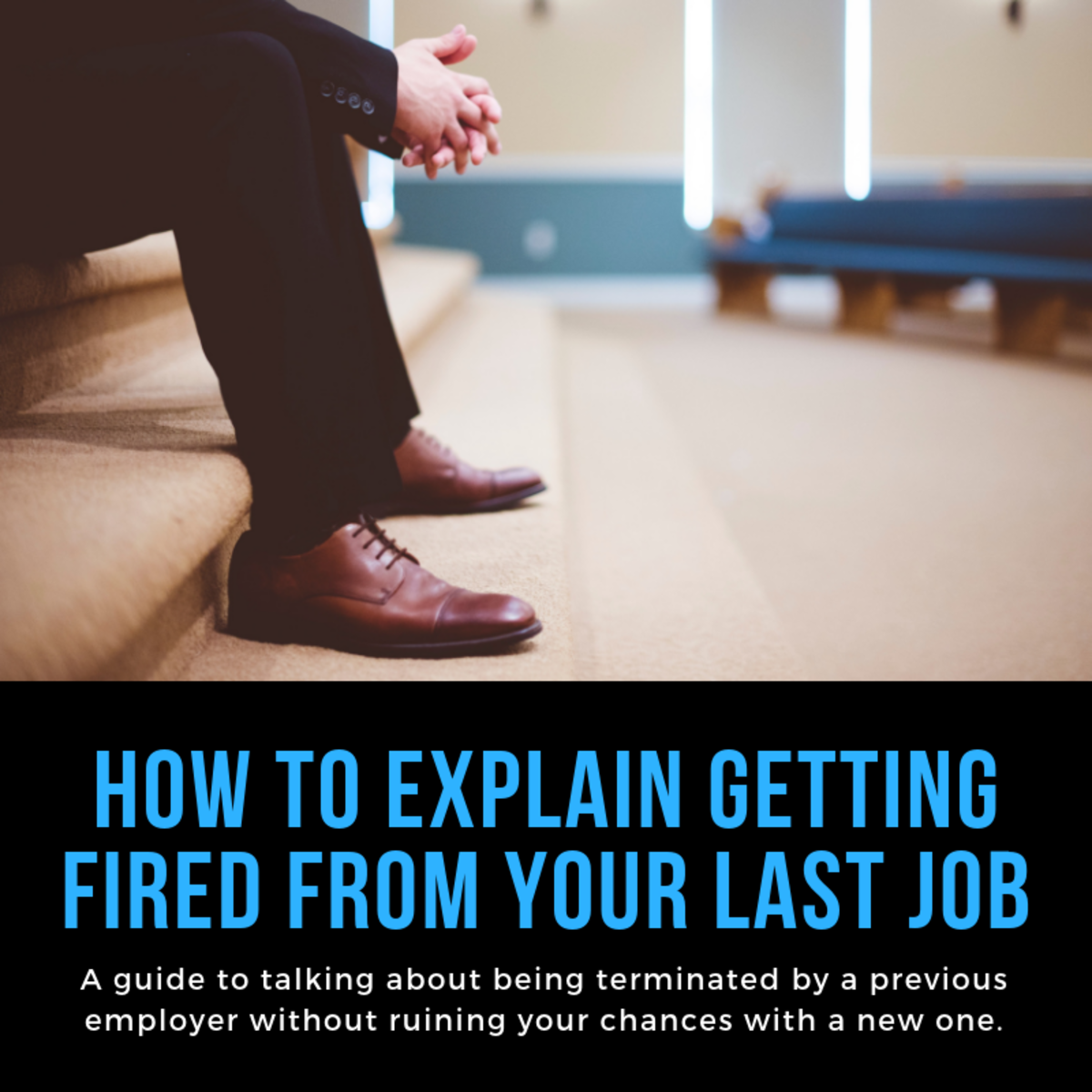How to Explain Termination In an Interview

Job Termination Woes
Imagine this scenario: One day you’re safe and secure in a job you love; the next, you’re terminated and wondering what happened. Worst of all, you were canned because of something you did, or didn’t do, that ticked off the director to the point you get the old left foot of fellowship with no progressive action taken. Simply, “You’re fired!”
I thought about this a long time after I was unexpectedly given the boot. I couldn’t think of a tactful way to explain why I was terminated. Don’t get me wrong. I wasn’t going to volunteer the information to anyone until they asked. After going through the dictionary, talking to other people about it, and doing a little research, I came up with a sure-fire way to give a logical, and humble, explanation for the termination.
On the Employment Application
First, how do you answer ‘Why Did You Leave Your Last Job?’ on an employment application? There’s the simple answer: POSITION LOST. To me, that’s the shortest and sweetest answer. It’s a nice way of saying “Dude, I got fired”. Then there’s always INVOLUNTARY DISMISSAL, but it sounds too harsh. Of course, if you’re really brave you can put TERMINATED on the application. Whatever reason you give, make sure you’re honest, but don’t reveal too much information on paper.
The Interview
Next, you actually get a job interview. It’s all going very smoothly, you’re selling yourself, focusing on your strengths and they ask the dreaded question, “So, why did you leave your last job?” (Rats, why did they have to ask!?) So here it comes, you take a collective breath:
Your Possible Answers:
Answer 1: “My skills didn’t seem to be the right balance to meet the employer’s expectations. I believe my abilities are more suitable for this position”.
Answer 2: “I originally took the job knowing it may not be right for me. I consider it a relief to be able to freely look for new opportunities now. I learned from the experience, though, and now have a better understanding of what’s most suitable for me.”
Answer 3: “I lost the position for reasons unrelated to job performance. The employer decided I just wasn’t the right fit for the organization anymore. My work record was flawless, though, and I have several references that can validate my work ethic.”
Answer 4: “There was some conflict that interfered with the job. I don’t think I had a good understanding of what management expected, but since then, I’ve been able to determine what the problem was and use it to my advantage in the future.”
Answer 5: “I was experiencing some personal problems that interfered with my job but I’ve since resolved these issues. I learned a lot from it, for sure, and now I’ve developed better coping skills that won’t interfere with work performance. I’m excited about new opportunities.
Even If It Was Wrongful Termination....
.....you still must deal with answering the question without badmouthing the former employer. I know, I know......it's hard, but nobody wants to hire someone who talks about how unfairly they were treated, and so forth, even if it's true!
It’s a lot easier to explain losing your job if it was due to downsizing, layoff, budget cuts, or some other reason because you can always say, “The company laid me off due to budget cuts…..” or whatever happened. But when you lose a job for personal reasons, conflict, or poor performance, that’s when your answers can make or break the interview.
If you find yourself in this situation, try practicing what you’ll say to potential employers. You’ll gain confidence and get good practice. So, be prepared when asked the dreaded question, “Why were you terminated?” Know exactly what to tell job interviewers when they ask you why you left your last job. You won’t regret it and you learn more in the process.
Tell Us Your Experience
Have you ever been fired from a job?
Other Suggested Reading:
- Changing Careers In Mid-Life
Going to college could be your best choice if you've been contemplating changing jobs or starting a new career. Remember that it's never too late to start over. - Example of Functional Resume: For Career Change.
What type resume do you use when you are changing professions? A Functional Resume: easy to use, step by step Functional Resume guide for anyone who wants employers to notice their transferable skills when changing careers.









